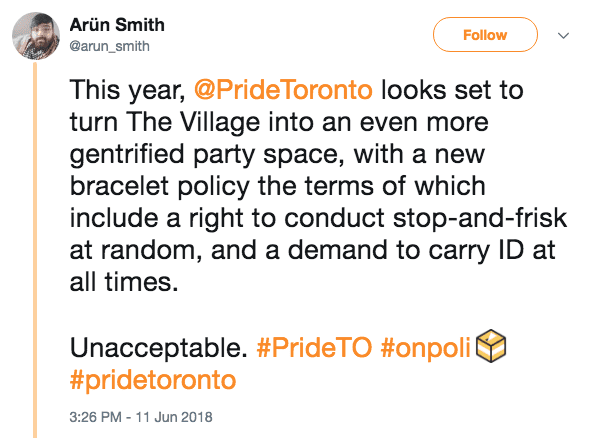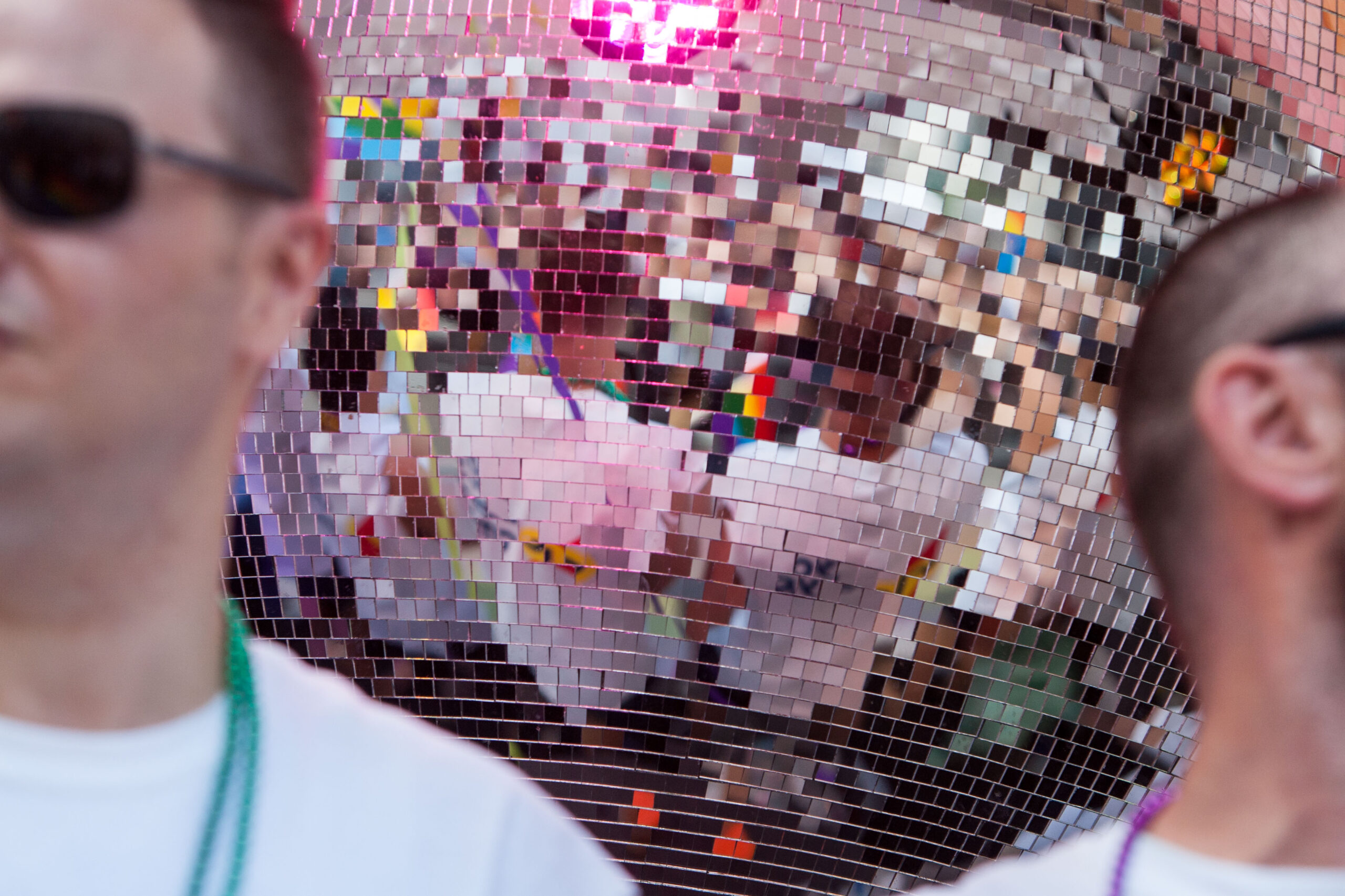You’ll be able to walk along Church Street with your drinks at Pride this year, but not without agreeing to some terms and conditions.
Pride Toronto’s new drink-and-carry program will allow people who have purchased a wristband to go anywhere within a designated area with an alcoholic beverage purchased from a participating establishment. This will make Pride Toronto the first street festival in the city where drinking won’t be restricted to patios or beer gardens. However, some critics say that the terms and conditions amount to stop and frisk.
The wristbands, which are available for one day or the full weekend, will allow people to take their drinks along Church Street, starting from Charles Street East down to Dundas Street East.
By purchasing a wristband for the program, a person must agree to a bag and ID check at any time.
Following the announcement of drink-and-carry, comments poured in across social media and Pride Toronto’s Facebook page, criticizing the checks.
Arün Smith, who describes himself as a racialized queer activist, shared his concerns about the terms and conditions on Twitter.
“Under no circumstances is it acceptable to arbitrarily stop and search queer and trans folks at Pride events and/or in community spaces,” Smith wrote.

A tweet from activist Arün Smith about Pride’s drink-and-carry program. Credit: @arun_smith/Twitter
Smith also says there’s an issue around requiring identification.
“When we get further into the areas of identification, we’re now getting into the areas of dead names for trans [people], we’re now getting into bodily interrogation, we’re now getting into the prospect that trans people will be required to declare not simply the presentation of their gender but also the nature of their body, which should be deeply concerning,” he tells Xtra.
In an emailed statement to Xtra, Olivia Nuamah, Pride Toronto’s executive director, says that the ID and bag check policy only applies to those who have purchased a wristband.
“Only if you choose to participate in the program will your ID be checked, as it would be if you were purchasing alcohol from any vendor,” Nuamah says in the statement. She adds that bags will be searched by security for illegal substances, and that they would have guidance from volunteers trained in harm reduction.
Corinne Alstrom-Sonne, a community member, tells Xtra she worries how bans on certain objects such as large bags, as well as medications in non-approved containers, will impact those who have disabilities.
Pride Toronto has faced scrutiny that the festival has moved away from its roots as a protest and space for marginalized people and prioritizes corporate sponsorship over the LGBT community’s needs.
Alstrom-Sonne says that she saw the event and conditions surrounding it as the last straw, deciding to organize a “funeral” for Toronto Pride.
“Why is it that it’s basically become St Patricks day but with rainbows instead of shamrocks? Why is it that it’s just this big party, and I am feeling less and less included,” Alstrom-Sonne says.
Nuamah’s statement acknowledges the changing Village, but says that the steps Pride is taking are necessary to support its growth.
“As you walk along our regular festival footprint, you will notice that our traditional spaces have changed and have been replaced with condos,” Nuamah says. “In order for us to support the growth of the festival and its needs, we are piloting this premiere program.”


 Why you can trust Xtra
Why you can trust Xtra


